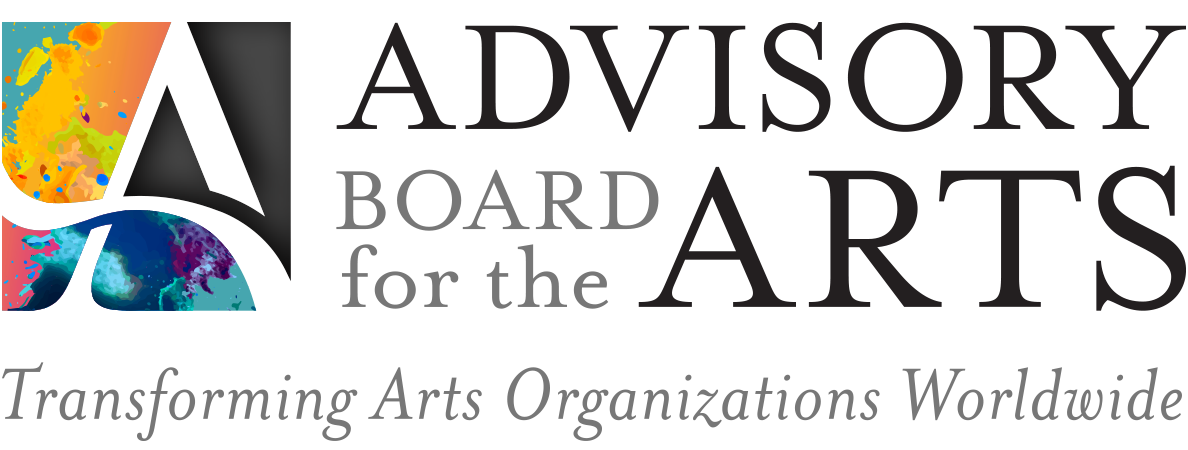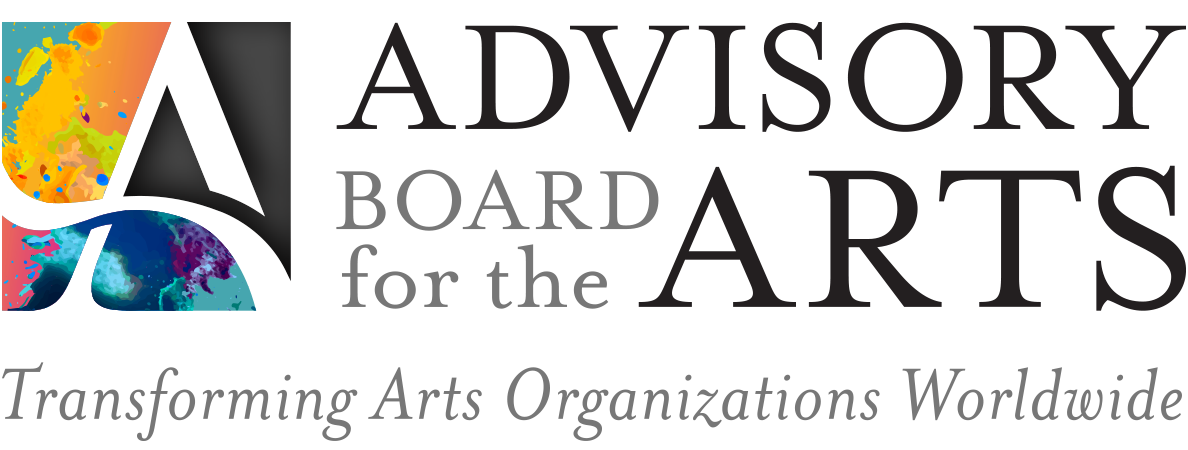Webinar Recap: Surviving a Shutdown: Lessons Learned from Prior Closure
May 12 (Replay at end of page and slides here)
On May 12th, The Advisory Board for the Arts hosted a webinar to provide arts leaders with insights on how they can effectively steer their organizations through the current shutdown. Our two guests, Paige Price, Producing Artistic Director of the Philadelphia Theatre Company and Paul Hogle, President and CEO of the Cleveland Institute of Music both have past experience in running organizations that went through at least 6 months of closure and came out stronger on the other side.
Paige’s shutdown experience was during her first year at the Philadelphia Theatre Company when they decided to cancel their 2017-2018 season to get the organization back on track financially. Paul’s experience was during his tenure at the Detroit Symphony Orchestra, when they faced a labor stoppage. Paige and Paul generously shared their experience during those periods of closure, and the lessons they are applying from that experience in their organization’s today.
Facing An Extended Period of Closure
In all of our conversations with arts leaders over the past few weeks two questions reign supreme: when will be able to reopen, and when we do, will audiences return? Most organizations we’ve spoken to are planning for three potential scenarios: 1) a limited opening in the fall with a socially distanced audience, perhaps supplemented by a streaming delivery 2) a more robust opening either right before the holidays (to potentially capture the Nutcracker audience) or right after the new year and 3) abandoning the ’20-’21 season entirely and looking toward September of 2021.
Any of these scenarios means that arts organizations will have shut their doors for a minimum of six months. Paige and Paul generously shared how their past closure experience has shaped their response to the Coronavirus crisis, and what they think arts leaders should be considering during this extended period of closure.
8 Lessons on How to Survive a Shutdown
Be disciplined about how you use the time. When asked about the number one lesson learned from his past closure experience, Paul shared it is being disciplined about how you use this time. He noted how easy it is for time to fly by so he is making sure that his organization is working every single day to make the most of this time by building meaningful plans for moving forward.
Consider this an opportunity to revisit “how things have always been done”. During DSO’s closure in 2010, Paul said he and his staff spent a significant amount of time doing “tabula rasa planning”. He gave staff his staff the freedom to question how things had always been done – even “sacred cow” type issues. One strategy coming out of this type of planning was the Detroit Symphony Orchestra’s neighborhood series. While the hall had always been a critical part of the symphony experience, the team decided to take the orchestra out into six different neighborhoods upon reopening to make their music more accessible to people. Ten years later the program still stands. Paige shared that during their period of closure they reimagined their gala, turning it into a competition “So You Think You Can Act”. It was a success and they continue to have this type of event.
Focus on how to differentiate yourself from the market in a way that aligns with your mission. Paige shared that during PTC’s period of closure, her team spent a significant amount of time thinking about how they could use their mission to differentiate themselves from others in the Philadelphia. She spent time observing other arts organizations in the area to identify where PTC might stand out or offer something different. Paige emphasized the importance of using the time now to examine and tighten your mission and use that to guide your plans.
Recognize the potential need for staff changes. During the period of closure at Philadelphia Theatre Orchestra, Paige was forced to make difficult staffing cuts. For those that stayed, she made it clear that it would be a period of difficult change. For those who were not up for that challenge, the organization offered to help them find new opportunities. PTC went through a wave of staff turnover, but they eventually had the team in place that they needed for the future – a team ready and willing to embrace change and a new way of doing things. Organizations will not be returning to a new world –andthough difficult to face, this new world may require different people. Paige referenced a book that she found particularly helpful during PTC’s closure, Managing Transitions: Making the Most of Change.
Have an open ear to advice from anyone, anywhere.Both Paige and Paul emphasized how important it was to listen to anyone that wanted to talk to them during their previous periods of closure. Whether a high school student or a board member, they agreed feedback from your audience is invaluable at this time – what are they looking for, how are they feeling, what is their perception of your organization at this time. In addition to listening to anyone, both of speakers also pointed out the importance of finding advisors outside of your immediate community. When Paige was finding the right staff for the future reopening of PTC, many of those individuals were sourced from outside of Philadelphia.
Create the future with your staff.Paul shared that when the DSO shut down, the very next day he created a return committee with members of his staff. They were tasked with thinking about their reopening strategy every day. When Paige started at Philadelphia Orchestra, she passed out an 8-page document that showed the financial situation of the organization and its outstanding debts. She brought everyone into the process so that they could feel like they had a part in coming out of it.
Currently PTC has furloughed most of its staff, but they are still hosting weekly team meetings. The first two meetings were more social, but she quickly realized her staff wanted to talk about the organization – they wanted to hear the plans and have a voice in them. As Paige said, “transparency is golden”. Paul reinforced the transparency point in how he has been communicating with his staff during the current crisis. He has been transparent about what could happen and when, and what will trigger those decisions.
Paige also recommended to use the time to involve your staff in the organization’s infrastructure. Housekeeping items, like updating your staff handbook or a code of ethics, are important but often get pushed aside. Use this time to take care of these items and empower your staff with purposeful work.
Consider what will matter to different stakeholder groups upon return. Paul shared that when they were planning for the reopening of the Detroit Symphony Orchestra, they considered the psychological needs of key stakeholder groups. The staff needed continuous communication about their plans and how they would survive. The orchestra wanted to be honored—to come on stage and be shown the respect they were owed. In their first performance back, they entered the stage European style, walking on together as a single unit. And finally, the audience needed to hear music that they loved.
Make your community feel invested when marketing your return. When the Detroit Symphony Orchestra was nearing its return, they created the phrase “community supported orchestra” and pushed it hard in their marketing campaigns. It flooded through all their materials and guided all of their actions, including the neighborhood symphony series mentioned above.
There’s no question that arts organizations face an enormous challenge to manage through this unprecedented time, but Paul and Paige’s experience provided a glimmer of hope that there may in fact be a silver lining of this crisis – a unique opportunity to reflect on your mission and transform your model in ways that will ultimately strengthen the organization in the long term.




